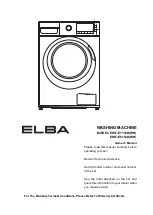
10
Safety Information
1.5
Battery and Electrical
System Precautions
The X Ride 28 operates on ei-
ther lead acid or AGM batter-
ies. Batteries can generate
gases which can ignite or
cause an explosion. Keep
sparks and flames away from
the batteries. Charge the bat-
teries only in well ventilated ar-
eas.
Wear eye protection when
working near batteries. Do not
put any type of metal objects or
tools across the battery termi-
nals or on top of batteries. Do
not clean the machine's electri-
cal parts or system, including
batteries, by means of high-
pressure cleaning equipment.
Such activities could cause
short-circuit or battery explo-
sion hazards, resulting in per-
sonal injury.
• Only use a charger designed for your
specific battery type.
• Only qualified individuals should at-
tempt to undertake maintenance and
repair activities associated with the
machine's electrical system in accor-
dance with appropriate industry
standards and government regula-
tions, if any.
• The electrical system of the machine
should be inspected at regular inter-
vals. Any obvious defects, such as
loose connections, damaged or
frayed electrical cables, corrosion,
should be repaired before the ma-
chine is put back into use. Failure to
do so could cause machine malfunc-
tions or electrical hazards.
• In case of a malfunction of the ma-
chine's electrical system, including,
but not limited to, unexpected loss of
power or individual system shut-
downs, the machine should be shut
down immediately for inspection and
required maintenance and repair.
Batteries must be selected and
seated appropriately in accor-
dance with factory machine
specifications. Failure to do so
could result in inappropriate
changes to the machine's cen-
ter of gravity which, in turn,
could result in machine opera-
tion and control hazards (espe-
cially on inclined surfaces) and
related personal injury.
• Observe all operating, use, and safe-
ty instructions provided by the appro-
priate battery manufacturer.
Used batteries must be han-
dled, disposed, or recycled
properly in accordance with
government regulations. Used
batteries should never be dis-
posed of as non-hazardous
waste (e.g. domestic or house-
hold waste). Used batteries
should be disposed or recycled
by appropriately trained and
permitted entities and /or dis-
posal facilities.











































